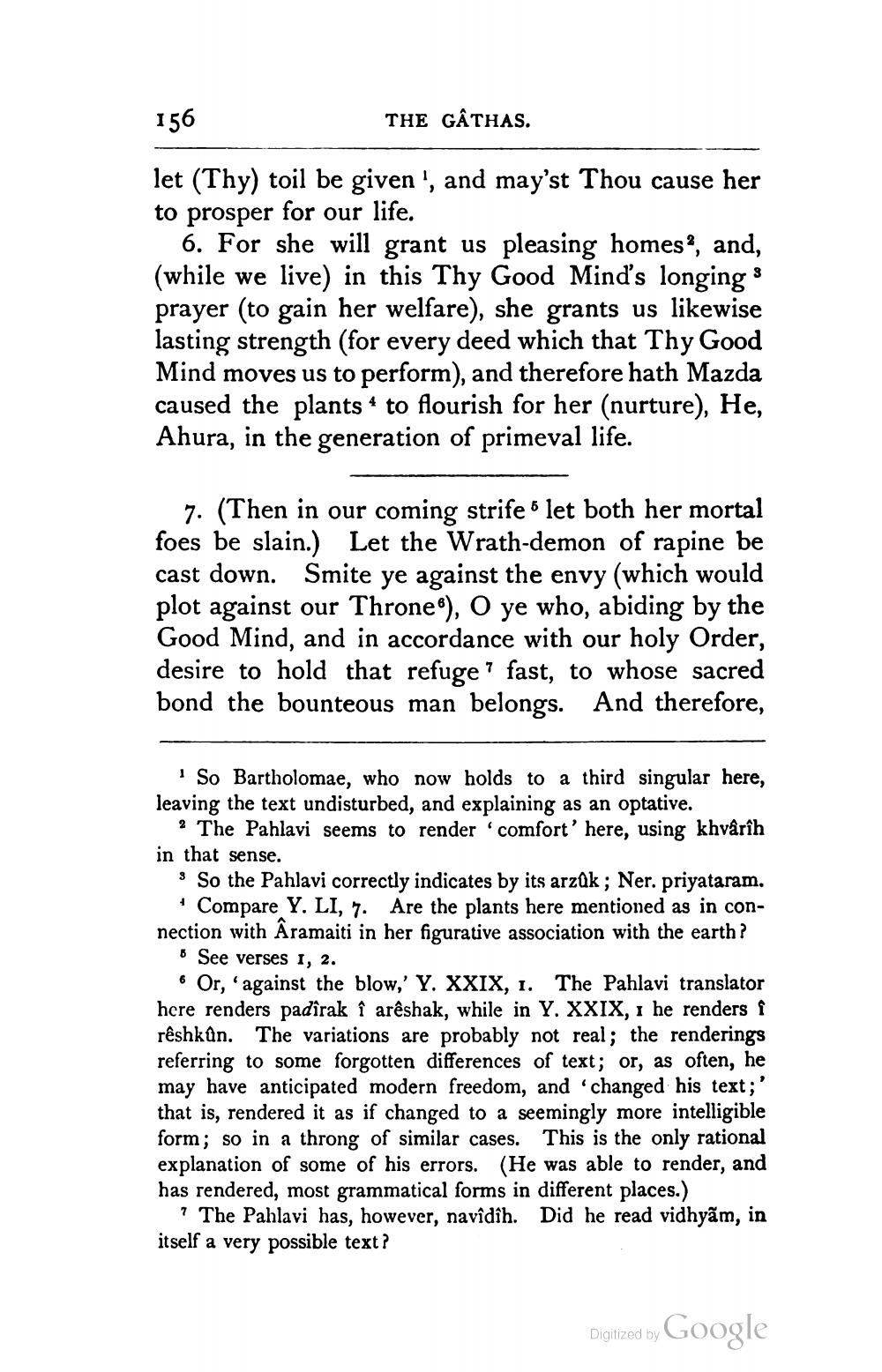________________
156
THE GÂTHAS.
let (Thy) toil be given', and may’st Thou cause her to prosper for our life.
6. For she will grant us pleasing homes?, and, (while we live) in this Thy Good Mind's longings prayer (to gain her welfare), she grants us likewise lasting strength (for every deed which that Thy Good Mind moves us to perform), and therefore hath Mazda caused the plants * to flourish for her (nurture), He, Ahura, in the generation of primeval life.
7. (Then in our coming strife 5 let both her mortal foes be slain.) Let the Wrath-demon of rapine be cast down. Smite ye against the envy (which would plot against our Throne), O ye who, abiding by the Good Mind, and in accordance with our holy Order, desire to hold that refuge? fast, to whose sacred bond the bounteous man belongs. And therefore,
So Bartholomae, who now holds to a third singular here, leaving the text undisturbed, and explaining as an optative.
· The Pahlavi seems to render comfort' here, using khvârîh in that sense.
So the Pahlavi correctly indicates by its arzûk; Ner. priyataram.
Compare Y. LI, 7. Are the plants here mentioned as in connection with Äramaiti in her figurative association with the earth?
• See verses 1, 2.
6 Or, against the blow,' Y. XXIX, 1. The Pahlavi translator here renders padîrak î arêshak, while in Y. XXIX, 1 he renders i rêshkûn. The variations are probably not real; the renderings referring to some forgotten differences of text; or, as often, he may have anticipated modern freedom, and changed his text;' that is, rendered it as if changed to a seemingly more intelligible form; so in a throng of similar cases. This is the only rational explanation of some of his errors. (He was able to render, and has rendered, most grammatical forms in different places.)
? The Pahlavi has, however, navîdih. Did he read vidhyām, in itself a very possible text?
Digitized by
Digitized by Google




